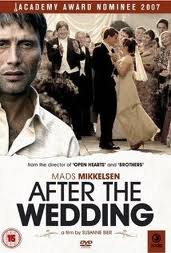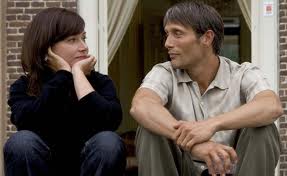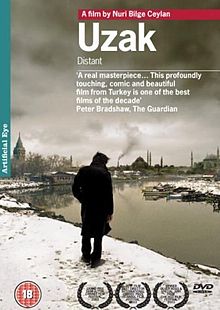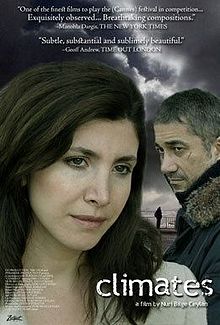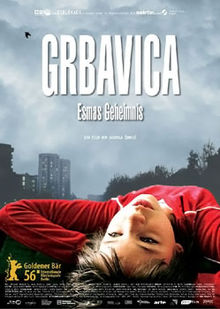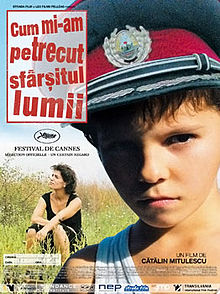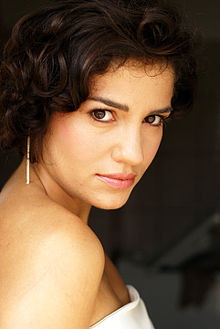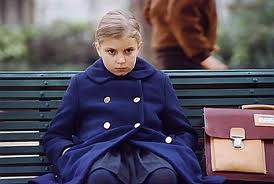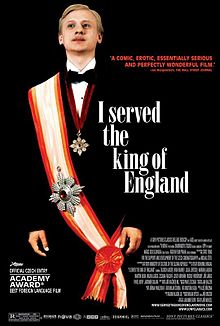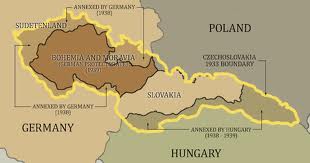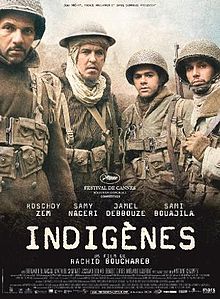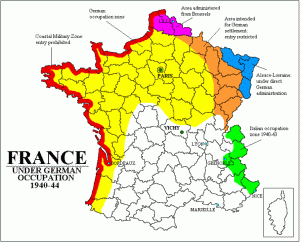 I think this year will be a memorable year for the people of Britain, with the 60 year celebration of the reign of Queen Elizabeth and the London Olympics. I think the past 60 years were a period of turbulence for everyone, but particularly for the Queen who had numerous difficulties over her 60-year-reign, including recovering from World War II, recovering from the economic downfall in Britain, the Cold War, the revolt of the IRA, the Falklands War, involvement in the Iraq War and the War in Afghanistan, and discord within the Commonwealth of Nations.
I think this year will be a memorable year for the people of Britain, with the 60 year celebration of the reign of Queen Elizabeth and the London Olympics. I think the past 60 years were a period of turbulence for everyone, but particularly for the Queen who had numerous difficulties over her 60-year-reign, including recovering from World War II, recovering from the economic downfall in Britain, the Cold War, the revolt of the IRA, the Falklands War, involvement in the Iraq War and the War in Afghanistan, and discord within the Commonwealth of Nations.
This movie depicts the decision Queen Elizabeth makes regarding the sudden death of Diana, who was deeply loved and respected as the “people’s princess,” in 1997. The Queen considers the death of a woman who left the royal family to be a “private matter” and continues to stay in the Balmoral villa after Diana’s death. This decision is seen by the people as “coldness from the royal family,” and the approval rating of the royal family drops abruptly below 50% among the citizens. Prime Minister Blair, who defeated the Conservative Party Administration and took over the government, is quick to use the deep affection for Diana to improve his approval; at the same time, he advises the Queen that if she continues to ignore Diana’s death, it will damage the reputation of the royal family. Back when Thatcher of the Conservative Party was Prime Minister, wanting to avoid wearing something similar to the Queen, she asked the Queen, “What will Her Majesty the Queen wear?” The Queen quipped, “I’m not interested in the clothes of my subordinates!” This shows that she is such a queen that makes a clear distinction between the royal family and their subjects; she does not understand why she must treat Diana, who divorced and left the family, as part of the royal family. However, witnessing the people mourn for Diana from the bottom of their hearts, the Queen, who had decided to dedicate her whole life—24 hours a day, 365 days a year—to her nation since the moment her father George VI succeeded the throne, decides she is willing to abandon what she had believed until now if the nation saw Diana’s death as the death of a true princess.
 The Queen is looking at a mountain of flowers for Diana that is piled up in front of Buckingham Palace when a girl offers her a bouquet of flowers. “Shall I give those flowers to Princess Diana?” the Queen asks, pointing at the mountain of flowers, but the girl decisively replies, “No!!” The girl with beautiful eyes replies to the surprised Queen, “These flowers are for you.” Through the facial expression of the emotionally moved Queen at that moment, the Queen and Helen Mirren, the actress playing the Queen, magically become one. The Queen, in an obituary speech for Diana from the royal family to the nation that is covered by the TV, gives a strong impression of a warm mother-in law and a grandmother concerned for Diana’s sons, the princes; with this speech, hostility from the citizens towards the Queen begins to fade.
The Queen is looking at a mountain of flowers for Diana that is piled up in front of Buckingham Palace when a girl offers her a bouquet of flowers. “Shall I give those flowers to Princess Diana?” the Queen asks, pointing at the mountain of flowers, but the girl decisively replies, “No!!” The girl with beautiful eyes replies to the surprised Queen, “These flowers are for you.” Through the facial expression of the emotionally moved Queen at that moment, the Queen and Helen Mirren, the actress playing the Queen, magically become one. The Queen, in an obituary speech for Diana from the royal family to the nation that is covered by the TV, gives a strong impression of a warm mother-in law and a grandmother concerned for Diana’s sons, the princes; with this speech, hostility from the citizens towards the Queen begins to fade.
For the generation of Queen Elizabeth, the crown princesses would have been the daughters of the royal families of other countries or at least the daughters of British aristocrats. When Prince Charles was in a relationship with Camilla, the marriage of the two was rejected; Camilla was from the British upper class, but she was not a top-ranking aristocrat. Diana was the perfect crown princess because she was the daughter of the Spencer family—the noblest family among noble families—and she quickly had the great accomplishment of bearing two sons, but the marriage ended with a divorce for various reasons. For the Queen, the messy drama during the divorce negotiation and Diana’s uninhibited behavior after the divorce “brought shame to the royal family.” Through this, the Queen also learned that the days when the crown princess was chosen based on class were gone. The young generation of crown princes in Europe—many of which were related to the British royal family—mostly have wives that are commoners, including a divorcee, a former pot smoker with children from a previous relationship, a former mistress of a drug lord, a former mistress of a high-ranking government official, the daughter of an important politician in the cabinet of a South American dictatorship that committed a massacre, and some with Asian or African heritage—such women were unthinkable in the Queen’s generation, but they have more or less gained support from the nation and carry out official business competently.
The Queen seemed to have a favorable impression of Camilla the whole time. Camilla was hated by the people for a long time as, “the ugly, detestable woman who evicted Diana,” but she didn’t defend herself with words, and as the nation watched her silently continue to accomplish very exhausting official business alongside Charles, their point of view started to change. People began to think, “She has a sense of responsibility for government affairs, and without the ‘Me! Me!’ ambition. She has overcome so many difficulties and continued to stay by Charles’s side. Perhaps it could even be called true love.” When Camilla visited America, an American journalist wrote something like the following: “In person, Camilla is much more beautiful than I had thought, and she was full of a kind humor. When I look at her, I am made to think that if Diana had lived, she may not have actually been able to grow old as beautifully and naturally as Camilla has.”
The Queen did not quite consent to the marriage between Diana’s son, Prince William, with his longtime lover, Kate Middleton. Kate’s house was a house of millionaires created in one generation—her father was middle class, but her mother was from working class and seems to possess resolute ambition. In addition, her uncle on her mother’s side was arrested for the possession and selling of narcotic drugs. However, the Queen’s concern about Kate was what others teased her of—not working after graduation as she waited to marry William—and it is said that the Queen seriously asked William, “Why doesn’t she work even though she is healthy?” In the end, the Queen approved the marriage between the two because she was convinced that there was most importantly love and trust between them. Kate as the wife of William handled government affairs very well and gained tremendous popularity among the people.
There is no sign of Queen Elizabeth’s popularity declining. Like a celebrity, the Queen jumped out of a helicopter as a Bond girl in the London Olympics opening ceremony (performed by a stunt double) and attended the opening ceremony; perhaps her intention was to contribute to the success of the Olympics and her nation. I wish the Queen many more years of health, but the people will be overwhelmed by deep sorrow upon her death. However, this sorrow will differ from Diana’s death; it will certainly be full of gratitude for her many years of service to her people and hope for the next generation.

